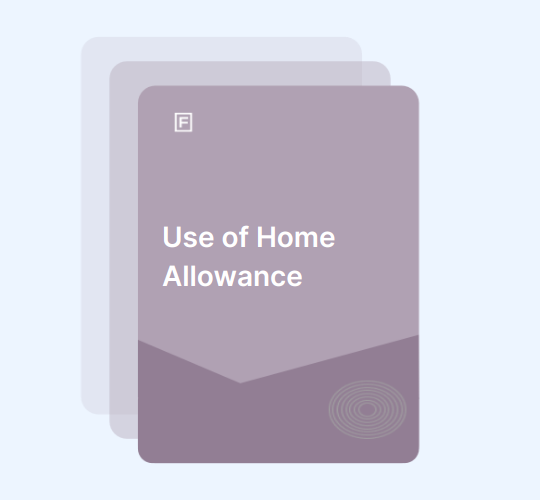In the UK, there is no specific "home allowance" for sole traders or limited companies. However, there are tax allowances and deductions related to using your home for business purposes, whether you're a sole trader or operating through a limited company. These allowances can help reduce the tax liability associated with using your home as a place of business. Here's how these allowances work for both sole traders and limited companies:
Home Office Deductions for Sole Traders
- If you're a sole trader or self-employed and use a part of your home for business purposes, you may be eligible for deductions related to the expenses associated with your home office.
- Common deductible expenses may include a portion of your utility bills (e.g., electricity, heating), rent or mortgage interest, council tax, and maintenance costs that relate directly to the area used for business.
- To claim these deductions, you'll need to calculate the proportion of your home used for business purposes and apply that percentage to the relevant expenses.
- Keep detailed records of your expenses and document how your home office is used for business purposes.
Home Office Expenses for Limited Companies
- Limited companies can also claim expenses related to using a part of the director's or employee's home for business purposes.
- As with sole traders, expenses may include a portion of utility bills, rent or mortgage interest, council tax, and maintenance costs directly related to the business area.
- The company can reimburse the director or employee for these expenses, which can be tax-deductible for the company.
- The director or employee must keep records of the expenses and demonstrate that the use of the home is necessary for business purposes.
Renting Your Home to Your Business
- In some cases, you might rent part of your home to your business. If this is the case, you must ensure that the rent charged is at a fair market rate, and the rental agreement should be formalized in writing.
- The rental income received from your business would be included in your personal income as a sole trader. For limited companies, the rental income would be a company expense.
It's essential to emphasize that the use of your home for business purposes should be justifiable, genuine, and proportionate to the nature of your business. Additionally, the tax rules regarding home office deductions can be complex, and they may change over time. Therefore, it's advisable to consult with an accountant or tax advisor who can provide guidance on maximizing your allowable deductions and ensuring compliance with tax regulations.
Proper record-keeping and documentation of expenses are crucial to support your claims for home office deductions.








%20(1).webp)











